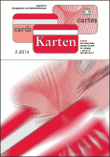Sie befinden sich hier: Home › cards › Ergänzende Informationen › Archivdaten › Processing Services inEurope:
Interbanking infrastructures
will be effective players
Archivdaten
01.08.2007
Kartendienstleister
Processing Services inEurope: Interbanking infrastructures will be effective players

Dieser Artikel ist Teil unseres Online-Abo Angebots.
cards Karten cartes, Ausgabe vom 01.08.2007, Seite 020
Archivdaten
2,60 €
2217